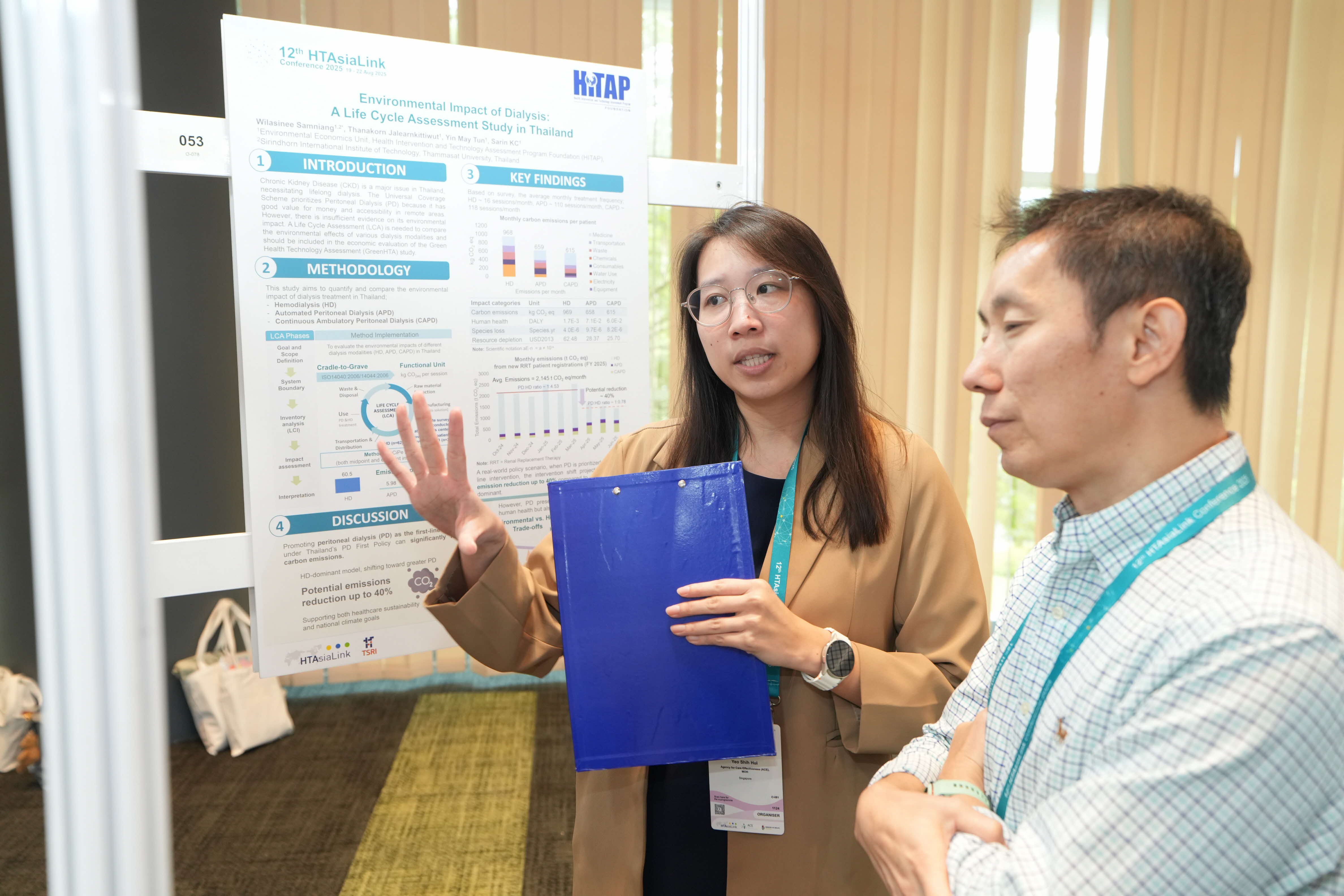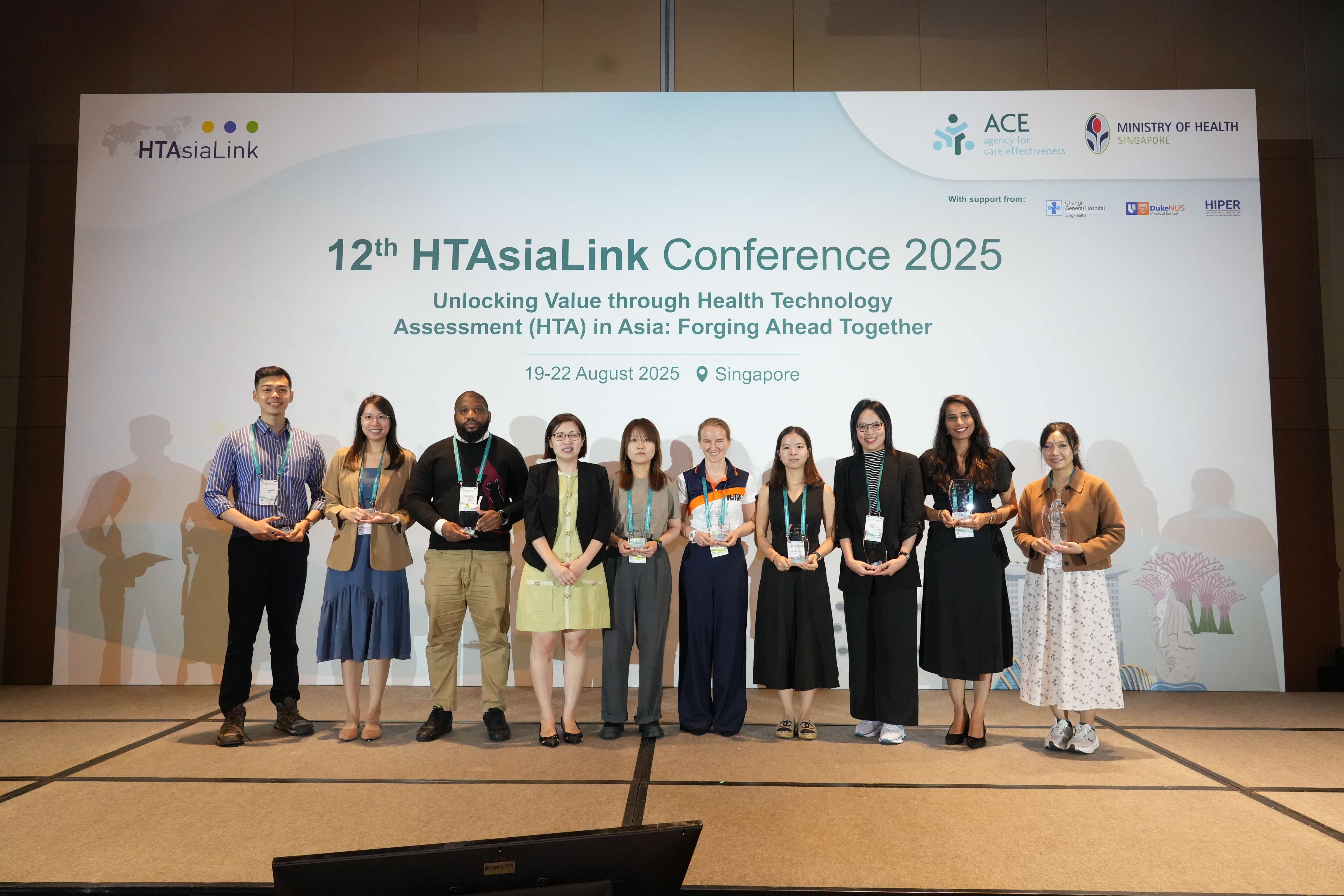12th HTAsiaLink Conference 2025
19 August 2025
Event date: 19 Aug 2025 - 22 Aug 2025
Location: Singapore EXPO, 1 Expo Drive, Singapore 486150
Conference Theme
Unlocking Value through Health Technology Assessment (HTA) in Asia: Forging Ahead Together
The 12th HTAsiaLink Conference was held in Singapore in 2025, where experts and leaders from the Asia Pacific region will converge to explore and advance the role of Health Technology Assessment (HTA) in unlocking value within our healthcare systems. The 2025 conference theme emphasises the power of collaboration as we forge ahead together, addressing shared challenges and opportunities in the region.
Conference e-Handbook
Click here to download
Photos from the Conference

Call for Abstract Tracks
3 tracks available for abstract submission
Track 1: Economic Evaluation | Track 2: Health Services Research | Track 3: Others |
|---|---|---|
Economic evaluation topic areas include:
| Health services research is the multidisciplinary field of scientific investigation that studies how
Topic areas include policy analysis, qualitative studies or mixed methods. | This track encompasses all research areas not specifically covered in Track 1 or 2. It can include diverse health-related studies, including but not limited to:
|
1 ISPOR. About Economic Evaluation. ISPOR. Accessed November 7, 2024. https://www.ispor.org/heor-resources/heor-by-topic-new/economic-evaluation. 2 Lohr KN, Steinwachs DM. Health services research: an evolving definition of the field. Health Serv Res. 2002;37(1):7-9. | ||



